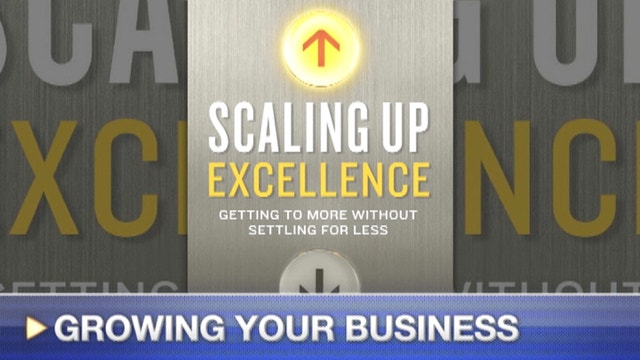‘Scaling Up’ Lessons from Google and Facebook
Even hugely successful companies like Google (NASDAQ:GOOG) and Facebook (NASDAQ:FB) had to start somewhere, right? Robert Sutton would know—he’s watched them, along with nearly 400 other companies, intimately for over seven years, as research for his new book, “Scaling Up Excellence.”
And luckily for businesses of all sizes, Sutton and co-author Huggy Rao, both Stanford professors, have documented growth mistakes you can learn from before trying to scale your own company.
One of the biggest mistakes Mark Zuckerberg and Larry Page say companies make is taking on too much, too soon, Sutton says.
“For newer companies, it’s all about slowing down now so that you can speed up later,” Sutton says. “There is a temptation to add too much, too soon, and then you get yourself into trouble.”
For example, during the hiring process many companies try to speed up and bring as many employees on as possible, he says. But then they wind up having to fire and re-start the process all over again if these people aren’t the right fit.
“The big mistake is that they don’t have the time to do things right, from hiring employees to choosing vendors,” Sutton says. “They fire people, and then have to do it again 20 times. Even in the early days of Google and Facebook, the founders were both imperfect people in many ways, but they got the notion of hiring the right people, and infused them with thinking the way they wanted them to. It’s really impressive.”
This leads Sutton to his next important ingredient for company success—culture.
“There is a notion of forming an identity, and good leaders are really clear on what is sacred or taboo [within the organization]” he says. “And if not, you wind up being Groupon. They went off the rails because they didn’t deal with that issue properly.”
Having company structure, and not being afraid to toss out policies and even people that aren’t working is another thing that businesses of all sizes need to be willing to do, Sutton says.
“Really smart leaders use hierarchy to defeat bad bureaucracy,” he says. “Sometimes you have to exercise your power as a leader.”
And finally, choosing your path to growth is also key, Sutton says. He calls the two approaches most common among companies “Buddhism” and “Catholicism.”
He says “Catholicism” for companies is “the notion that as you expand, you make a daily decision to do the same thing everywhere you go.” While “Buddhism” is “allowing people to have autonomy and local customization.”
“The reason it matters is that you have to have a heart and soul, but sometimes having a standard philosophy, you run into local problems where your model doesn’t quite work,” he says.




















